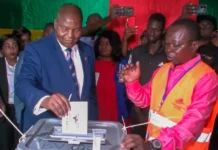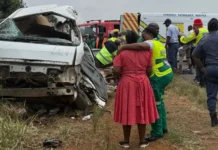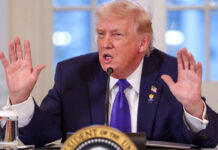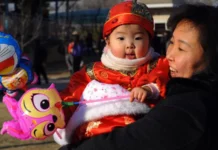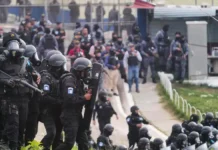A high-level ministerial meeting aimed at advancing peace efforts in war-torn Sudan has been abruptly postponed following a serious disagreement between Egypt and the United Arab Emirates (UAE) over the content of a joint statement, diplomatic sources told AFP on Tuesday.
The meeting, which was to involve senior representatives from the United States, Saudi Arabia, Egypt, and the UAE, was expected to take place in Washington this week as part of ongoing international efforts to halt a war that has killed tens of thousands and triggered the world’s largest hunger and displacement crisis.
According to a spokesperson from Egypt’s Foreign Ministry, the gathering was intended to “chart a path toward negotiations to end the conflict” between the Sudanese Armed Forces (SAF) and the paramilitary Rapid Support Forces (RSF), who have been locked in a brutal power struggle since April 2023.
The postponement was triggered by an eleventh-hour dispute over the role of Sudan’s warring factions in any future transitional government. According to diplomatic sources, the UAE proposed last-minute language in the joint statement stipulating that neither the SAF nor the RSF would have a role in a transitional political process, a position deemed “totally unacceptable” by Cairo.
An Arab diplomat familiar with the talks, who spoke on condition of anonymity, told AFP: “The UAE inserted a last-minute change to include no presence for both the army and the RSF in the future transitional process.” Egypt, the source added, viewed the stipulation as undermining Sudan’s institutional sovereignty.
Another source close to the negotiations revealed that the United States had circulated a draft statement that had been accepted by all parties, including the UAE, but Egypt objected to a clause stating that the transitional period should not be controlled by any of the warring parties.
In light of the disagreement, the U.S. ultimately decided to postpone the meeting until consensus can be reached.
The impasse highlights a growing rift between Cairo and Abu Dhabi, two traditionally close regional allies now standing on opposite ends of the Sudan conflict.
Egypt has long been a staunch backer of the Sudanese army, viewing it as a stabilizing institution and a critical partner in managing cross-border issues, including security and Nile water politics. Egyptian officials have repeatedly stressed the need to “preserve Sudan’s national institutions”, a veiled reference to their support for General Abdel Fattah al-Burhan and the SAF.
By contrast, the UAE has been widely accused of backing the RSF, led by General Mohamed Hamdan Dagalo (known as Hemeti), with weapons and logistical support, in direct violation of a United Nations arms embargo on Sudan’s western Darfur region. Although Abu Dhabi has repeatedly denied the allegations, reports from UN experts, U.S. lawmakers, international organizations, and Western diplomats suggest otherwise.
Sudan’s gold exports, much of which are believed to be smuggled through RSF-controlled territory, are almost entirely funneled to the UAE, raising further questions about Abu Dhabi’s economic stake in the conflict.
Since fighting erupted in April 2023, Sudan has plunged deeper into chaos, with the SAF controlling northern, eastern, and central regions, while the RSF dominates much of the west and south, including Darfur. The RSF recently declared a parallel government in areas it controls, a move seen by analysts as formalizing the de facto partition of the country.
The humanitarian toll has been catastrophic. According to the United Nations, the war has displaced over 12 million people, caused tens of thousands of deaths, and pushed millions to the brink of famine.
Despite multiple rounds of U.S.- and Saudi-brokered peace talks, no meaningful ceasefire has held. International observers warn that the Sudan conflict is increasingly becoming a regionalized proxy war, with foreign interests intensifying the violence and undermining peace prospects.
With the ministerial meeting now postponed, it remains unclear when negotiations will resume. Analysts say the breakdown reflects deeper divisions among external stakeholders that must be resolved if any viable peace framework is to emerge.
“The longer these disagreements among international actors persist, the more protracted and dangerous the Sudan war becomes,” said one regional analyst. “Sudan risks becoming another battleground for geopolitical rivalry at the expense of its people.”
As diplomacy stalls and the humanitarian crisis worsens, calls are mounting for a renewed and unified international strategy that prioritizes an inclusive peace process and holds external enablers of the conflict to account.
Written By Rodney Mbua












